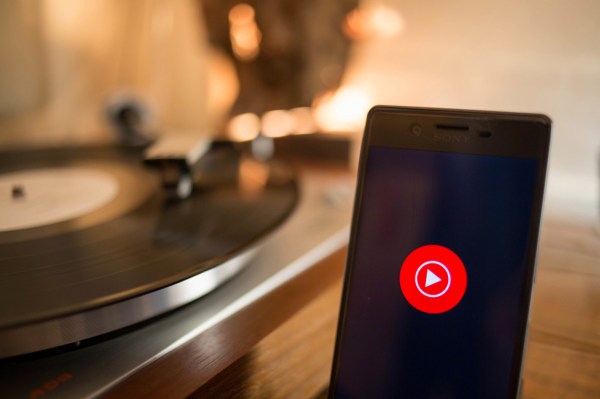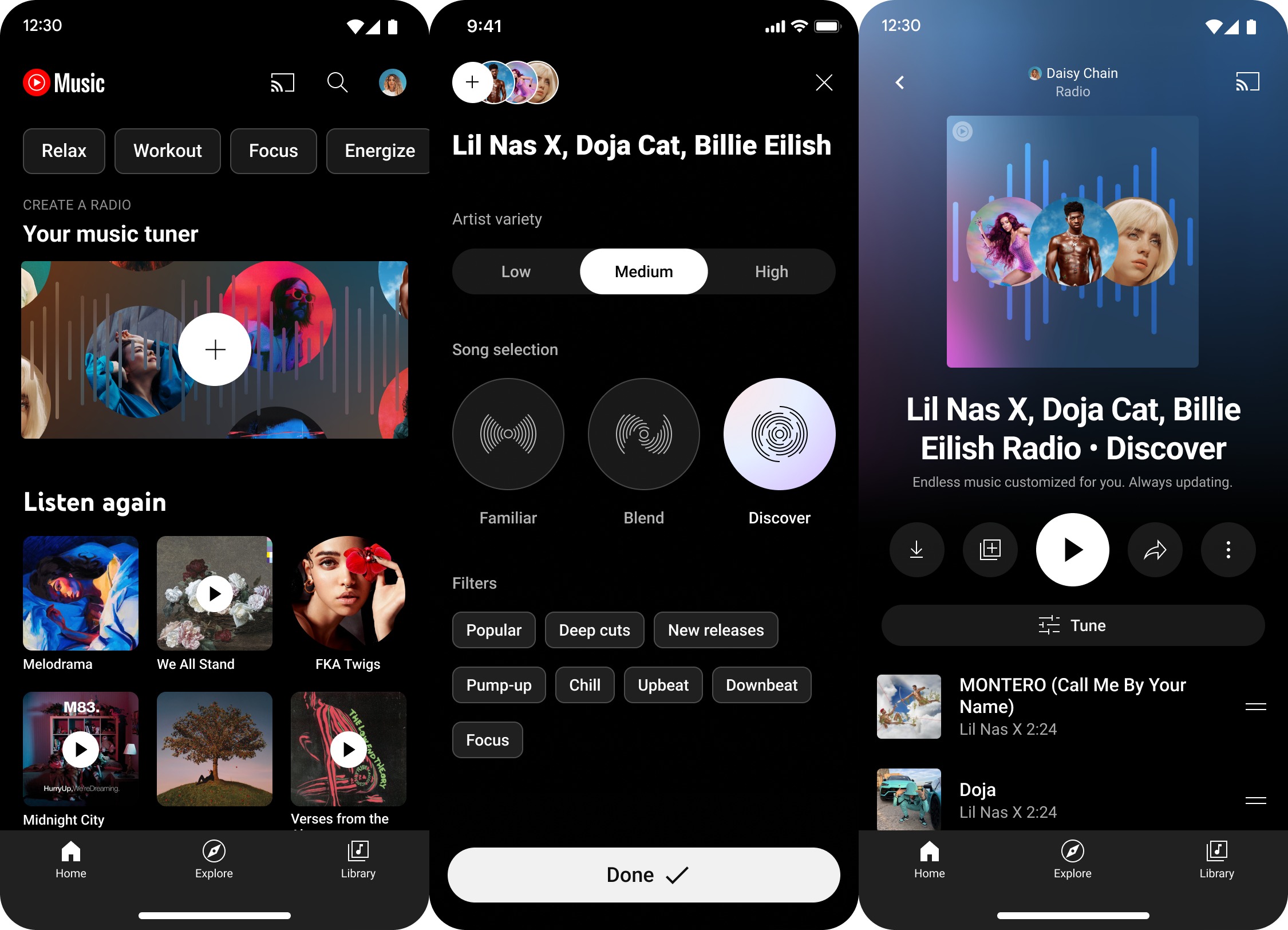YouTube Music’s latest feature lets users create custom radio stations

YouTube Music is introducing a new radio experience that lets users create their own custom stations, the company told TechCrunch on Tuesday. Prior to the launch of this feature, users have started music listening experiences by picking from preexisting playlists, radios or albums, but now users can create their own radios from the ground up.
With this new experience, you can pick up to 30 artists when creating your own radio station. You can also choose how frequently these artists appear and apply filters that change the mood of the station. The experience lets you choose if you want the radio to only include the artists you’ve selected or if you also want content from a broader set of similar artists as well. There’s also the option to refine your results further by using specific filters, such as “new discoveries” or “chill songs.”

Image Credits: YouTube
Popular music streaming services like Spotify and Apple Music offer radio features that allow users to create playlists based on a specific song or artist, but they don’t offer additional customization beyond that point. YouTube Music’s redesigned radio experience gives users a lot more flexibility than its competitors.
“With this new radio functionality, we’re flipping that model on its head, empowering users to create their own radios from the ground up, by combining key music building blocks such as artists and common music descriptors,” the company said in an email. “The result is giving users a lot more control over their music listening experiences, and allowing them to slice their music in many ways currently unavailable to them, on YouTube Music or really any music service.”
To access the feature, you need to navigate to the YouTube Music homepage and scroll down until you see “Your music tuner.” The new experience is rolling out on iOS and Android in all of the countries where YouTube Music is available for both free and paid users.




